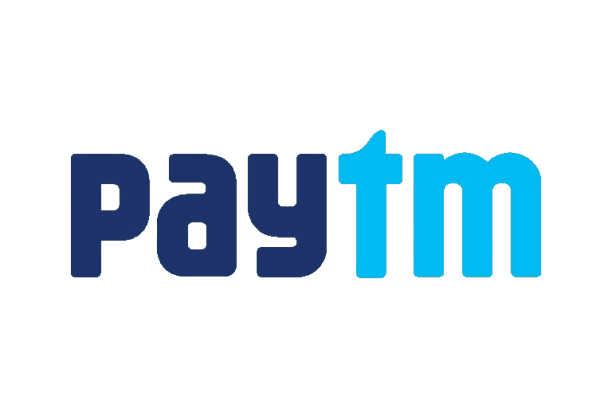
Online shopping and digital payments are booming in India. Because of this, businesses need fast, safe, and easy-to-use payment gateways. Whether you run a small shop or a big company, the right payment system helps you accept payments smoothly.
Picking the best payment gateway is essential for your business. This guide will show you the Best payment gateway options in India. We’ll compare their features, benefits, and costs so you can choose the right one.
Introduction
India is experiencing a digital transformation, and the payment sector is also evolving significantly. With the rise of online shopping, mobile apps, and subscription-based services, the demand for secure, fast, and user-friendly payment solutions has skyrocketed.
Payment gateways are the backbone of this digital transaction ecosystem, enabling businesses to process payments quickly and securely. India’s digital payment market has been bolstered by government initiatives like Digital India and demonetization, as well as advancements in technologies like Unified Payments Interface (UPI).
With a multitude of options at your disposal, what criteria should you consider when selecting the ideal payment gateway for your business? This article delves into the top players in the Indian payment gateway market to help you decide.
What is a Payment Gateway?
Definition and Role
A payment gateway is a technology platform that facilitates online payments for businesses. It acts as a middleman between the customer and the merchant, ensuring the smooth transfer of funds while safeguarding sensitive information.
How Payment Gateways Work
- Initiation: When a customer makes a purchase, the payment gateway encrypts their transaction data.
- Authorization: It verifies the payment details with the bank or card provider.
- Processing: The transaction is processed and confirmed in real time.
- Settlement: Funds are transferred to the merchant’s account.
A reliable payment gateway ensures seamless transactions, minimizing the risk of failed payments or data breaches.
Key Features to Look for in a Payment Gateway
1. Security Measures
Security is non-negotiable in payment gateways. Look for PCI-DSS compliance, encryption protocols, and fraud prevention mechanisms to protect customer data.
2. Compatibility and Integrations
Your payment gateway should integrate easily with your website, mobile app, or e-commerce platform. Compatibility with popular platforms like WooCommerce, Shopify, and Magento is a significant plus.
3. Payment Options Supported
- Credit and debit cards
- Net banking
- UPI
- Wallets
- EMI options
4. Transaction Speed and Reliability
Fast transaction processing ensures customer satisfaction. Opt for a gateway with high uptime and quick settlement times.
Benefits of Using a Payment Gateways
Enhanced Customer Experience
A good payment gateway simplifies the checkout process, making it easier for customers to complete transactions. Features like saved cards and one-click payments further enhance user convenience.
Increased Security
Payment gateways employ cutting-edge security technologies, reducing the risk of fraud and unauthorized transactions.
Scalability for Businesses
As your business grows, a robust payment gateway can handle higher transaction volumes effortlessly, supporting expansion without a hitch.
How to Choose the Right Payment Gateways for Your Business
Selecting the ideal payment gateway can feel like searching for a needle in a haystack, especially with so many choices. Please take into consideration these important factors:
1. Assess Your Business Needs
Ask yourself:
- What payment methods do your customers prefer?
- Do you need multi-currency support for international transactions?
- Will you require additional features like subscription billing or bulk payouts?
2. Budget Considerations
Payment gateways come with varying fee structures, including setup fees, transaction charges, and monthly maintenance costs. Pick a solution that matches your budget constraints without giving up on vital features.
3. Customer Base and Preferences
Analyze your audience demographics. For instance, if your customers heavily use UPI, ensure the payment gateway offers robust UPI integration.
4. Ease of Integration
The payment gateway should seamlessly integrate with your website, mobile app, or e-commerce platform. Developer-friendly APIs are a bonus for businesses with custom setups.
5. Customer Support
Reliable customer support can save you from potential headaches during payment issues. Search for 24-hour support and rapid response times.
Security Considerations for Payment Gateways
Security is paramount when handling sensitive financial information. A secure payment gateway can protect your business and customers from fraud.
1. PCI-DSS Compliance
Ensure the payment gateway adheres to Payment Card Industry Data Security Standards (PCI-DSS), a mandatory requirement for secure transactions.
2. Fraud Detection Mechanisms
Look for fraud detection tools such as:
- Transaction monitoring
- AI-based anomaly detection
- Blacklist/whitelist management
3. Data Encryption
End-to-end encryption ensures sensitive customer information, such as credit card details, remains confidential during transactions.
4. Secure Tokenization
Many payment gateways use tokenization to replace card details with unique tokens, reducing the risk of data breaches.
The Role of UPI in Indian Payment Gateways
India’s payment system has undergone a significant transformation with the advent of the Unified Payments Interface (UPI). Most modern payment gateways incorporate UPI as a standard payment option.
Benefits of UPI in Payment Gateways
- Instant Transactions: UPI transactions are processed in real time, reducing wait times.
- Cost-Effective: UPI streamlines the payment process by bypassing expensive card networks, thereby decreasing transaction fees for businesses.
- Wide Adoption: UPI’s extensive user network allows your business to connect with a diverse and expansive audience.
Future of Payment Gateways in India
The payment gateway market in India is rapidly changing, fueled by technological progress and the dynamic nature of consumer behavior.
1. AI and Machine Learning
Payment gateways are leveraging AI for fraud detection, personalized customer experiences, and predictive analytics.
2. Blockchain Integration
Blockchain technology is set to revolutionize payments with increased transparency, faster settlements, and reduced fraud.
3. Expansion of UPI
UPI is expected to integrate with more global platforms, opening new opportunities for businesses targeting international markets.
4. Voice-Activated Payments
With the rise of voice assistants like Alexa and Google Assistant, voice-activated payments are becoming a new frontier for payment gateways.
Best Payment Gateways in India
1. Razorpay payment gateway & payment solutions for india

Razorpay is a popular choice among startups and SMEs for its user-friendly interface and robust features.
- Features: Supports multiple payment modes, subscriptions, and international payments.
- Pricing: 2% per transaction for domestic payments; 3% for international.
- USP: Extensive API integrations and innovative solutions like RazorpayX for business banking.
website: https://razorpay.com/
2. Paytm Payment Gateway

Paytm leverages its vast ecosystem to offer seamless payment solutions.
- Features: UPI, wallets, credit cards, and EMI support.
- Pricing: 1.99% per transaction.
- USP: Strong brand recognition and compatibility with small businesses.
website: https://business.paytm.com/payment-gateway
3. Instamojo

Designed for small businesses and freelancers, Instamojo offers simple and affordable payment solutions.
- Features: Instant payouts, free setup, and integration with WhatsApp.
- Pricing: 2% + ₹3 per transaction.
- USP: Free tools for setting up online stores.
website: https://www.instamojo.com
4. CCAvenue

One of the oldest payment gateways in India, CCAvenue offers extensive features.
- Features: Multi-currency support, analytics, and fraud protection.
- Pricing: Starts at 2% per transaction.
- USP: Advanced customization options for large businesses.
website: https://www.ccavenue.com/
5. PayU

A trusted name in payment processing, PayU is ideal for enterprises and SMEs.
- Features: EMI support, recurring billing, and UPI integration.
- Pricing: 2% per transaction.
- USP: Highly customizable API integrations.
website: https://payu.in/
6. Cashfree

Known for its competitive pricing and ease of use, Cashfree is perfect for startups.
- Features: Bulk payouts, instant refunds, and UPI support.
- Pricing: 1.75% per transaction.
- USP: Fast settlement cycles and advanced dashboard analytics.
website: https://www.cashfree.com/
7. Stripe

Stripe has gained popularity in India for its developer-friendly approach and global reach.
- Features: Multi-currency support, advanced fraud detection, and detailed reporting.
- Pricing: 2.9% + ₹7 per transaction.
- USP: Sophisticated tools for SaaS businesses.
website: https://stripe.com/
8. PayPal

PayPal remains a favorite for international transactions.
- Features: Multi-currency support, invoice generation, and buyer protection.
- Pricing: 4.4% for international transactions.
- USP: Strong global presence and trust factor.
website: https://www.paypal.com/
Detailed Comparison of Payment Gateways
| Payment Gateway | Key Features | Pricing | Best For |
|---|---|---|---|
| Razorpay | Subscriptions, international payments, APIs | 2% for domestic, 3% for international | Startups, SMEs |
| Paytm | UPI, wallets, EMI, seamless integration | 1.99% per transaction | Small businesses |
| Instamojo | Free setup, instant payouts, integration with social platforms | 2% + ₹3 per transaction | Freelancers, SMBs |
| CCAvenue | Multi-currency support, analytics, fraud protection | Starting at 2% | Large enterprises |
| PayU | EMI, recurring payments, UPI | 2% per transaction | SMEs, enterprises |
| Cashfree | Bulk payouts, instant refunds, UPI | 1.75% per transaction | Startups |
| Stripe | Global payments, advanced APIs, fraud detection | 2.9% + ₹7 per transaction | SaaS and global businesses |
| PayPal | Multi-currency, invoice generation, international transactions | 4.4% for international | Global merchants |
Case Studies: Success Stories of the Best Payment Gateways in India
1. Razorpay: Empowering Startups
A Bangalore-based SaaS startup scaled its business using Razorpay’s subscription billing feature. By automating recurring payments, the company improved its cash flow and customer retention.
2. Paytm: A Small Business Triumph
A local grocery store in Delhi saw a 50% increase in sales by adopting Paytm Payment Gateway, thanks to its seamless UPI integration and easy-to-use dashboard.
Conclusion
Selecting an appropriate payment gateway is essential for the success of any business operating in India. With options like Razorpay, Paytm, Instamojo, and more, the right platform can streamline your transactions, enhance customer satisfaction, and scale your business effortlessly.
Consider your business needs, budget, and customer preferences to make an informed decision. Remember, a secure, reliable, and user-friendly payment gateways isn’t just a tool—it’s the foundation of your digital transactions.
FAQs
1. What are the most cost-effective payment gateways in India?
Cashfree is known for its competitive pricing, charging as low as 1.75% per transaction.
2. Which payment gateway is best for international transactions?
When it comes to international transactions, Stripe and PayPal are highly recommended due to their broad international coverage and capability to manage multiple currencies.
3. Can I integrate various payment gateways into my business model?
Yes, integrating multiple payment gateways can provide flexibility and redundancy, ensuring seamless operations even if one gateway faces issues.
4. Are payment gateways secure for small businesses?
Absolutely! Most gateways offer PCI-DSS compliance, encryption, and fraud detection, making them safe for businesses of all sizes.
5. What is the typical duration for integrating a payment gateways?
The integration process varies by provider but typically ranges from a few hours to a couple of days, depending on the complexity of your system.
Share this content: